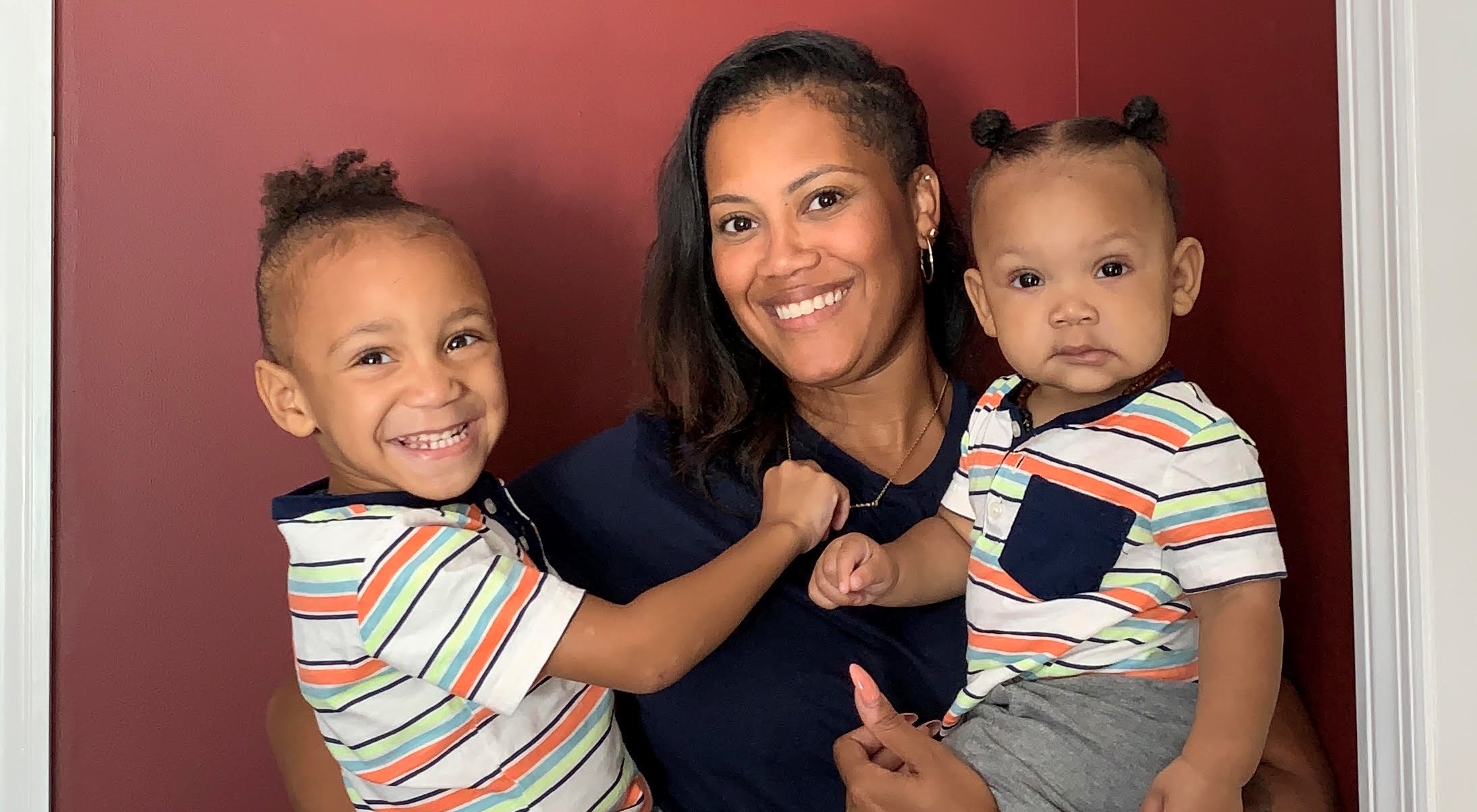My Ovarian Cancer Scare Shows Us Why We Can’t Afford to Ignore Any Red Flags

My children saved my life, and here’s how.
In December of 2018, I learned I was pregnant. When I went in for my first ultrasound, a tumor was discovered on my left ovary. I was told that the mass would need to be monitored closely during my pregnancy. I would love to tell you that this overshadowed my pregnancy, but it didn’t. At maternal/fetal appointments, I was consistently told it wasn’t growing; it was consistently downplayed. The sonographer even gave me the best pictures of my baby.
I was consistently told it wasn’t growing; it was consistently downplayed.
In my third trimester, my OB told me I should look into having the cyst removed once I healed from delivery — that was that. The fourth trimester was full of sleep deprivation, adjustment and a love I’d never known. So, on top of not experiencing any notable pain or discomfort, I honestly forgot about it.
Now, it’s 2020 and I’m pregnant again with a new OB. She was a Black female and a mother (and yes, to me these details made a difference). The first ultrasound of this pregnancy, the sonographer gasped and mentioned the mass. I waved her off and told her I knew about it from my first pregnancy, that I’d forgotten about it until that moment.
Once medical records were procured and compared, my OB informed me I had a cystic teratoma. She said 12 percent of those found early are cancerous and an equal, real concern was what these tumors are made of: hair, bone, tissue, muscle, fat and sometimes teeth.
My troll or gremlin, as I would refer to it, had grown since it was discovered and the mass of it could have lead to torsion. Layman’s terms: the weight and size of my teratoma could flip my ovary.
My OB sat and held my hand, explaining that if it were to burst or tort, they could perform surgery while pregnant to repair the damage with no disturbance to the uterus and baby. However, if it remained as is, nothing could be done until postpartum. If I had a cesarean, she would remove it then. Considering the size, she might have to remove the entire ovary with it. If I had a vaginal birth, we’d schedule surgery for six months postpartum.

Yep. Did I mention this is 2020, pandemic 2020, quarantine 2020, delivery with one support person and a mask 2020! Now this, a large, heavy teratoma that might be cancerous and was the reason for my first surgery ever. My pregnancy was wonderful, I delivered a 9-lb., 8-oz., 21.5-in. beautiful, healthy boy vaginally.
This meant surgery.
As a combat veteran, I opted to go through the VA for my procedure. They ran through their own assessment, ultrasound, pelvis exam and blood work, and the surgeon was thorough about the goal to remove the teratoma through my vagina and to repair my hernia. She explained the risk of also losing the ovary it was connected to. Mentally this was a lot to process.
I made one request: just wake me up because I have children to raise.
In July, I had a cystectomy, partial oophorectomy and hernia repair. They removed the benign tumor and half of my left ovary.
The reason I felt compelled to share this story is because a dermoid cyst, or cystic teratoma, is a congenital condition. I’ve had it all my life!
When my abnormally high testosterone levels stopped me from menstruating after puberty, no one checked. When I was told I had fibrous tissue in my breast, no one checked. When I received breast exams and deep brown moles were seen near my areola, no one checked. When I had an abnormal pap in the military — no one checked.
All of these signs should have been red flags. But a woman’s uterus isn’t important until she wants to have kids, has complications having kids or no longer wishes to have kids.
This is why I say my children saved my life. Without them, my teratoma, benign of cancer cells, but full of tissue, muscle, fat and hair, would have remained growing in my body.
On Aug. 31, a presidential action was passed to make September National Ovarian Cancer Awareness Month. Since there are no early detection screenings for ovarian cancer and Black women are disproportionately aggressed by this assassin, I wanted to share my ovarian cancer scare. Under the Affordable Care Act, a full checkup, with no copayments or deductibles, is covered for “well-woman visits” with a primary care physician and gynecologist.
It is time for women to prioritize their physical health as well as mental health. At those annual or bi-annual pap visits, ask them to check everything! Because no one deserves to feel fear of cancer growing while they’re trying to grow a baby. Women don’t deserve to suffer through persistent pain.
Knowing is powerful, and that power can save your life.
